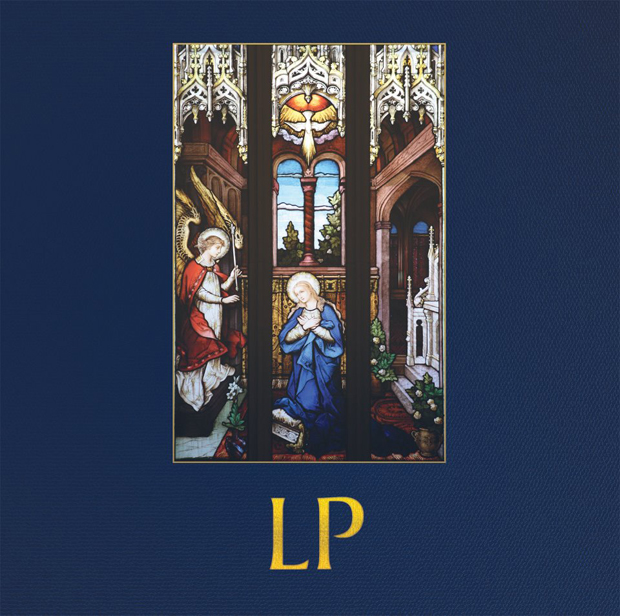d’Eon. d’Eon, d’Eon, d’Eon. When he put out the Darkbloom split with Grimes last year, the latter received the bulk of the album’s praise, largely thanks to the infectious “Vanessa.” But Darkbloom was also some of Chris d’Eon’s most confident and aggressive synth-pop yet, probably best heard on “Transparency,” which gave his Peter-Gabriel-esque croon and keyboard a furious, almost IDM-inflected layer of percussive support.
d’Eon further expands his sound on LP, his first proper full-length release (discounting 2010’s Palinopsia EP, which was practically a full-length itself). Yes, “Now You Do” features a similar backing of hyperactive programmed beats that recall those on Sleigh Bells’ Reign of Terror. But it’s also seven minutes long, morphing from a rather straightforward electro-pop track to something more amorphous and abstract. The song, much like LP as a whole, never loses its way or meanders into ambient nothingness; d’Eon weaves his catchy verses into a broader, less structured tapestry of pixelated arpeggios and shifting moods (check the seamless deceleration to a more downtempo rhythm during the song’s final minute and a half). “Now You Do” transitions right into “Virgin Body,” which discards percussion altogether in favor of a gelatinous collage of synths and bells over which he sings cryptic rhetorical questions and other hazy lyrics.
Lyrically and musically, LP is reminiscent of Laurel Halo’s Quarantine. Like Halo, d’Eon is fascinated by the interplay between fallible human emotion and the ominous omnipresence of technology, as evidenced by song titles like “My iPhone Tracks my Every Move” and “I Look Into the Internet.” Also like Halo, however, d’Eon doesn’t let these social/technological ruminations get in the way of good ol’ fashioned love songs either. “Every time that I check my messages for you/ When I think this is it/ Always turns out to be some other bullshit,” he complains on “Transparency Pt. II.” Later, on “I Don’t Want To Know,” he remains obsessed with the seductive voice on the other end of the line: “I hear your voice, streaming audio/ I try and try, but I just can’t let it go/ I can hear you with the static of the radio/ But I don’t want to hear it, ‘cuz I don’t want to know.” In addition to having a grasp on the sounds of the future-past similar to that of James Ferraro, he’s got an R&B singer’s sense of blues and romantic wistfulness. This combination lets him follow a plaintive couple verses of frustrated longing with a wicked electric piano solo.
If this all sounds a bit cheesy or precious… well, it is. There’s definitely a nostalgic undercurrent coursing through this album’s synthetic tones. I don’t think d’Eon is acting ironically, however. If the religious iconography and frequent mentions of the archangel Gabriel are any indication, d’Eon places much stock in the nuances of the myriad cybernetics that comprise so much of our daily lives. On “iPhone,” for instance, he explains: “My iPhone tracks my every move/ And I showed it who I am/ But there is nothing they can prove/ ‘Cuz Gabriel is not a man,” while bubbling 808s (and eventually, what sounds awfully like a pan-flute) bear witness all the while. Soon he just starts repeating Gabriel’s name as though it were a prayer, and he doesn’t stop when the track ends. Indeed, throughout LP, synth lines and lyrical patterns bleed from one song to the next in yet another twist on traditional pop tropes. The album’s track delineations aren’t so much arbitrary as they are recontextualized; why does the end of a particular track have to mean the end of its train of thought? In the 21st century, when we’re no longer bounded by the limitations of physical media formats, why are individual tracks so important anyway?
These are just a couple of the questions d’Eon explores on LP. This work thus functions as a sort of electronically-inclined parallel of religious inquiry, wherein the godhead is worshiped, beloved, and feared. The advent of the internet and other technological advancements has raised some unsettling questions about the ways our society might change in the years and decades ahead, especially with respect to the narcissism that social media seems to engender. Chris d’Eon understands this ambiguity and indeed seems to revel in it. This might seem paradoxical—reveling in that which is dangerous—but I think it’s just a coping mechanism. “Everybody’s trying to be the savior/ I know there’s no more prophets left,” he concludes on “Gabriel Pt. I.” He definitely identifies a good amount of danger in our modern technology, but this danger also brings with it a restless, almost giddy abandon. Revelation is coming; these fast-snapping beats and Super Nintendo notes don’t have time to waste on such trifles as traditional structure or patient unfolding.
And that’s not a bad thing; in fact, they make for one of the most fun albums I’ve heard this year. Nice of d’Eon to keep this march towards digital hell from sinking into the maudlin or dirgelike. I could’ve done without quite so many chipmunk vocals, but for the most part, d’Eon exhibits both a passion for experimental electronic music and a marked artistic progression. I just hope the flames don’t reach us before he has time to record a few more of these babies.

